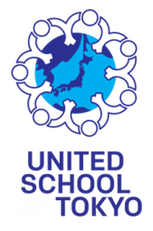CURRICULUM OVERVIEW
At United School of Tokyo, we pride ourselves on having a curriculum that focuses on systematic teaching of basic skills, enabling our students to be confident and independent learners. Children apply these range of skills across an exciting theme-based curriculum. The annual curriculum is divided into 5-6 units of study. In addition, there are four key elements reflected in our curriculum throughout the year:
• Our part as responsible and caring human beings
• Our part as global citizens
• Our impact on the environment and what we can do to protect it
• Experiential education
Embedded within our curriculum are a variety of field trips and hands-one activities for every unit of study to extend the learning outside of the classroom and expose students to a wide variety of first-hand experiences to learn from.
We acknowledge that children enjoy learning in a variety of ways, which is why we base our approach on personalized learning. Small classrooms allow our teachers to know their children really well, which enables them to tailor the curriculum delivery to meet individual needs of every student. Our curriculum is based on a clear progression in skills and knowledge.
Learning is blocked into units of study, enabling teachers to make effective use of assessments. We believe that since children learn in a variety of ways, they also should be assessed in many different ways to reflect that.
The children are active learners and are given feedback on their progress in every lesson. Our students are given targets and are involved in the target setting process. They know what they need to do to be successful learners and love learning. We actively seek out students' views on their learning, frequently assess goal achievement, help them identify new areas of growth and devise a clear plan of how to achieve them. The academic, behavioral and social-emotional goals are set and assessed every term and communicated between teachers, students and parents.
While using the American Common Core curricular standards for curricular benchmarks, we believe in the importance of adopting various highly ranked literacy and numeracy programs in order to better serve the academic needs of our student population.
At UST, we also recognize the importance of learning multiple languages. Children who have studied a foreign language show greater cognitive development in such areas as mental flexibility, creativity, divergent thinking, and higher-order thinking skills. In addition to cognitive benefits, we believe that studying Japanese language helps students increase their sensitivity and understanding of the language, values, customs, and traditions of the country we live in. This in turn fosters a sense of humanity, friendship, and diversity awareness.
It is our ultimate goal to help shape the thinkers of tomorrow; to be positively contributing citizens of our ever-expanding world and help students develop ownership of a better future.
• Our part as responsible and caring human beings
• Our part as global citizens
• Our impact on the environment and what we can do to protect it
• Experiential education
Embedded within our curriculum are a variety of field trips and hands-one activities for every unit of study to extend the learning outside of the classroom and expose students to a wide variety of first-hand experiences to learn from.
We acknowledge that children enjoy learning in a variety of ways, which is why we base our approach on personalized learning. Small classrooms allow our teachers to know their children really well, which enables them to tailor the curriculum delivery to meet individual needs of every student. Our curriculum is based on a clear progression in skills and knowledge.
Learning is blocked into units of study, enabling teachers to make effective use of assessments. We believe that since children learn in a variety of ways, they also should be assessed in many different ways to reflect that.
The children are active learners and are given feedback on their progress in every lesson. Our students are given targets and are involved in the target setting process. They know what they need to do to be successful learners and love learning. We actively seek out students' views on their learning, frequently assess goal achievement, help them identify new areas of growth and devise a clear plan of how to achieve them. The academic, behavioral and social-emotional goals are set and assessed every term and communicated between teachers, students and parents.
While using the American Common Core curricular standards for curricular benchmarks, we believe in the importance of adopting various highly ranked literacy and numeracy programs in order to better serve the academic needs of our student population.
At UST, we also recognize the importance of learning multiple languages. Children who have studied a foreign language show greater cognitive development in such areas as mental flexibility, creativity, divergent thinking, and higher-order thinking skills. In addition to cognitive benefits, we believe that studying Japanese language helps students increase their sensitivity and understanding of the language, values, customs, and traditions of the country we live in. This in turn fosters a sense of humanity, friendship, and diversity awareness.
It is our ultimate goal to help shape the thinkers of tomorrow; to be positively contributing citizens of our ever-expanding world and help students develop ownership of a better future.


